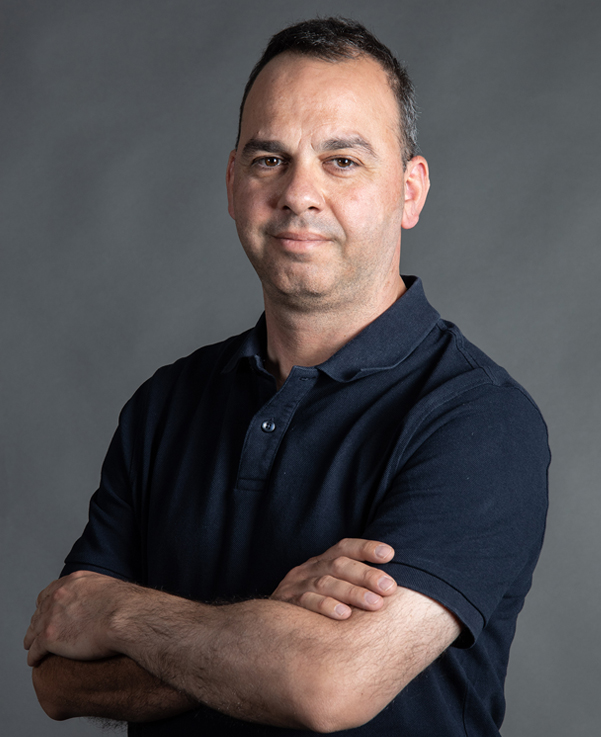
Nicolas-George Eliades
Dr. Nicolas-George Eliades is a forest scientist and researcher with extensive experience in population genetics, conservation biology, and natural ecosystem management. He holds a BSc and MSc from the Democritus University of Thrace and a PhD from Georg-August University in Göttingen, Germany (Initiative of Excellence). His doctoral research focused on the genetic diversity and spatial genetic structure of the endemic Cyprus cedar (Cedrus brevifolia), aiming to support its conservation through scientific evidence. During his doctoral study, he actively participated in research projects and collaborative networks, including IKYDAD (Greece-Germany) and EvolTree (FP7).
In 2009, Dr. Eliades returned to Cyprus and was appointed scientific advisor to the Federation of Environmental and Ecological Organizations of Cyprus. From this position, he actively contributed as a permanent member of national committees dealing with environmental protection and sustainable development. He also participated in various initiatives and committees of the European Environmental Bureau (EEB), representing Cyprus at the European level.
In January 2010, he joined the Nature Conservation Unit (NCU) of Frederick University, embarking on an academic and research-oriented professional career. Over the years, he has joined numerous international research networks and programs, including IKYDAD (Greece-Germany), EvolTree (FP7), Erasmus, as well as projects funded under major European frameworks such as LIFE, Interreg, and Horizon. As a member of NUC, he has participated in research network programs including Erasmus and COST, as well as in the drafting, submission, and implementation of research proposals funded by programs such as LIFE, Interreg, Horizon, RPF/RESTART (Research and Innovation Foundation of Cyprus), among others. Dr. Eliades has developed a rich research portfolio focused on biodiversity conservation, sustainable forest management, and the linkage between science and applied environmental policy. In the context of his research activity, one of his proposals was funded under the 2009–2010 Framework (Pillar II: Development of Human Research Resources, "DIDAKTOR Program") by the Research Promotion Foundation of Cyprus (RPF). Through this project, he conducted his postdoctoral research from NCU, collaborating through visits and laboratory stays with the Department of Forestry and Management of the Environment and Natural Resources at the Democritus University of Thrace and the French National Research Institute for Agriculture (INRAE, Avignon Unit).
Furthermore, he has participated in numerous projects funded by the European Commission’s LIFE program. The projects PLANT-NET CY and LIFE-KEDROS, in which he served as the Project Manager, have earned European and/or international awards.
His academic involvement extends to higher education and professional training. Since 2012, he has taught in various academic programs, including courses offered by the Cyprus Forestry College and training programs
at Frederick University. He is also actively involved in mentoring and supervising undergraduate, postgraduate, and doctoral students.
Dr. Eliades’ scientific and academic activity has generated new knowledge, which has been presented in more than 30 publications, including scientific journals, conference proceedings, technical manuals, and book chapters, as well as in over 40 abstracts at international scientific conferences. Noteworthy in terms of his involvement in academic accreditation committees is his participation as a member of the External Evaluation Committees of the Hellenic Authority for Higher Education (HAHE) of Greece, for the evaluation and accreditation of study programs at Greek universities.
Additionally, within the framework of the upcoming reopening of the Cyprus Forestry College, he has participated as an external expert in the Internal Evaluation Committee of the Forestry College of Cyprus, both during its Institutional Accreditation and during the accreditation of its study programs by the Cyprus Agency of Quality Assurance and Accreditation in Higher Education (CYQAA).
In recognition of his contribution to sustainable development and environmental research, Frederick University awarded Dr. Eliades the 1st Prize for “Actions in Support of the Sustainable Development Goals” as part of the University’s “Michael Frederickou Excellence Awards for the academic year 2023-2024”.



